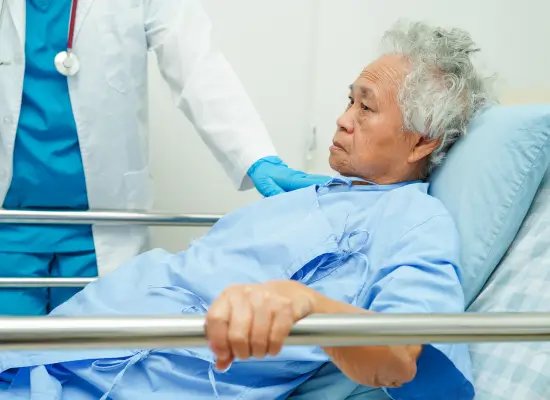People may experience different symptoms of stroke depending on the area of the brain affected. Common symptoms of stroke are:
- Confusion or agitation
- Difficulty in speaking or, sometimes, complete loss of speech
- Blurry vision or double vision
- Nausea and vomiting
- Loss of coordination
- Sudden or severe headache
- Dizziness or vertigo
- Seizures
- Stiffness of neck
- Loss of memory
- Loss of muscle control on one side
- Sudden loss or worsening of senses
- Weakness or paralysis of one side of the body




















